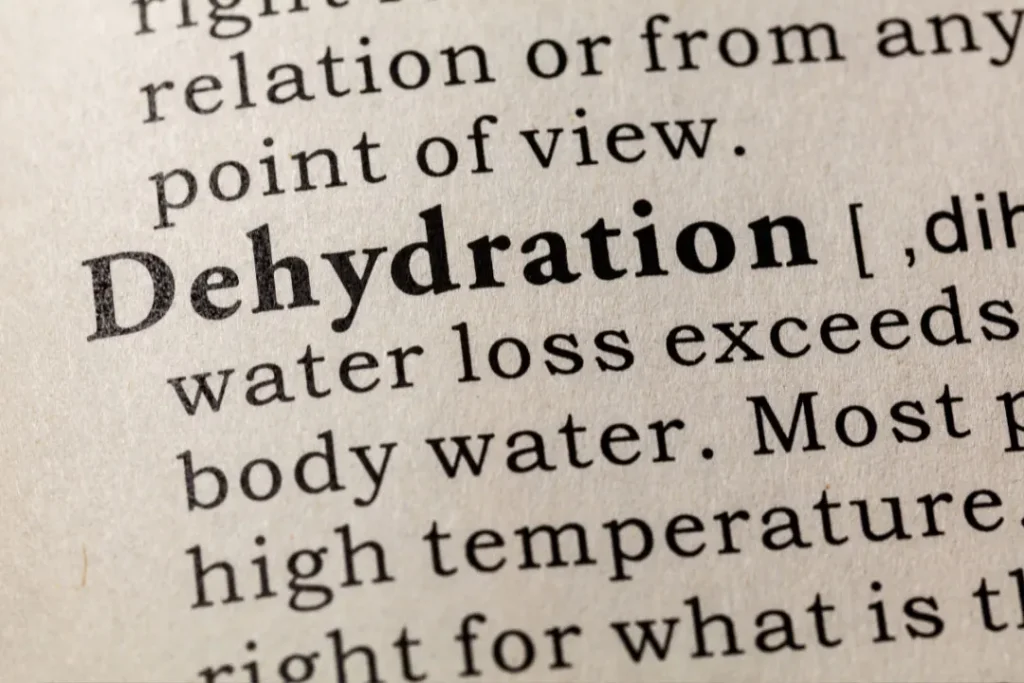The common dandelion, or Taraxacum officinale as it is named scientifically, is well-known around the world for both its aesthetic appeal and its vast range of therapeutic uses. This unassuming plant provides a rich source of minerals including iron, calcium, and potassium as well as vitamins A, C, and K. Notably, dandelion has long been a mainstay in conventional medicine because of its alleged health advantages. Further research is necessary to understand the science underlying these advantages, the optimal dose, any adverse effects, and interactions.
You May Also Like:
The Best Mushroom Supplements for Memory: 5 Top Brands Reviewed
Finding the Best Supplements for Brain Fog After COVID: 5 Top Brands Reviewed
Dandelion: Benefits, Dosage, Side Effects, Drug Interactions, and Other Important Information is an original (NootropicsPlanet) article.
The Nature of Dandelion
Dandelion plants are perennials that may be found all over the world. Teas, tinctures, capsules, and even culinary products may all be made from the complete plant, which includes the roots, stems, leaves, and flowers. Its unique phytochemical makeup is the secret to its medicinal properties. Terpenoids, phenolic compounds, and inulin are only a few of the bioactive substances found in dandelion that may have medicinal benefits.
Taraxasterol and beta-sitosterol are two terpenoids that have anti-inflammatory and antioxidant effects. Chicoric acid and chlorogenic acid are two phenolic substances that contribute to the plant’s antibacterial and antioxidant properties. Dandelion roots are also a good source of inulin, a soluble fiber that helps to regulate blood sugar levels and support digestive health.

Health Benefits of Dandelion
Dandelion phenolics, especially flavonoids like luteolin and apigenin, have strong antioxidant effects. They aid in the body’s scavenging of dangerous free radicals, which may lessen oxidative stress, a major cause of chronic illnesses including cancer and heart disease.
Liver Health Promoting liver health is one of the dandelion’s traditional purposes. This assertion has been supported by current scientific research, which shows that dandelion can shield the liver from poisons. Taraxacin, a sesquiterpene lactone present in dandelion, has demonstrated hepatoprotective benefits in animal studies, most likely through lowering inflammation and oxidative stress.

Chemistry of Dandelion
The dandelion has a complex chemical makeup, with each part contributing in a different way to the health advantages. The plant’s promise as a medicine is mostly due to its abundance of bioactive substances, which include terpenoids, phenolic compounds, and inulin.
The broad family of naturally occurring organic compounds known as terpenoids is produced from isoprene units with five carbons. Taraxasterol and beta-sitosterol are two terpenoids found in dandelion that have anti-inflammatory and antioxidant activities.
Another important chemical class identified in dandelion is phenolic compounds. Chicoric acid and chlorogenic acid, in particular, support the plant’s antioxidant and antibacterial properties. They also fall under the category of polyphenols, a subclass of phenolic chemicals that is well-known for its potential health advantages, such as lowering inflammation, thwarting cancer cells, and controlling diabetes.
And last, dandelion roots contain a lot of inulin, a soluble fiber. It is a fructan made up of chains of fructose molecules that finish in molecules of glucose. Because inulin has no effect on blood sugar, it is advantageous for those with diabetes.

Physiological Mechanisms of Action of Dandelion
Dandelion’s physiological advantages are mostly related to the characteristics of its chemical components. Here is how they function:
Activity of Antioxidants: Dandelion flavonoids including luteolin and apigenin have substantial antioxidant properties. They provide free radicals in the body with hydrogen atoms, neutralizing them and averting cellular damage. This lessens the impacts of oxidative stress, a major factor in the emergence of chronic illnesses including cancer and heart disease.
Hepatic health: Taraxacin, a sesquiterpene lactone, is primarily responsible for dandelion’s hepatoprotective effects. Taraxacin controls liver inflammation and oxidative stress to provide hepatoprotective effects. Additionally, it could promote the production of glutathione, a potent antioxidant that is essential for the liver’s detoxification procedures.
Internal Health: Dandelion roots contain inulin, a prebiotic that stimulates the development of good gut flora. This affects digestive health because a healthy gut flora improves food absorption, helps digestion, and supports a strong immune response.
Dehydrating Effects: The high potassium concentration of dandelion contributes to its diuretic effects, among other things. Dandelion can boost urine output, which is good for those with edema and hypertension since it helps the body flush out extra fluid.Dandelion exerts a variety of possible health advantages through these several processes, highlighting the capacity of this common herb to enhance general health and wellness.

Optimal Dosage and Usage of Dandelion
There is no standard dose for dandelion products due to their wide range of quality. A typical dosage for dandelion root tea is 1-2 tablespoons of the root steeped in boiling water, taken up to three times per day. Doses of dandelion root or leaf extract generally vary from 500 to 2000 mg per day. Following the manufacturer’s instructions or getting advice from a healthcare expert is always advised.
If in doubt, defer to the recommended dosage you maty find on any product labels. And above all else, if you are pregnant, you should avoid any dosage at all due to the limited awareness surrounding dosage and side effects of Dandelion.
Side Effects of Dandelion
Although dandelion has several health advantages, eating it in big amounts might have some negative effects.
These include allergic responses, especially in people who are sensitive to ragweed and similar plants, heartburn, anddiarrhea. For these reasons, it is recommended that you consult with your doctor if you have any known issues concerning your gallbladder, gallstones, or kidneys.
Potential Substance Interactions of Dandelion
Due to its diuretic and blood-glucose-lowering qualities, dandelion can interact with several drugs in terms of substance interactions.
When used with potassium-depleting diuretics, it may potentially intensify their effects and result in low potassium levels. Dandelion should only be used sparingly by those who are on diabetic medications since it might cause hypoglycemia.
Best Responsible Use of Dandelion
The different varieties of dandelion offer a promising natural supplement with a wide range of possible health advantages. This “weed” is a living example of how nature can cure us, thanks to its antioxidant properties as well as its advantages for the digestive and liver systems. It should be taken properly, though, taking into account any possible adverse effects and medication combinations, just like any supplement. To comprehend the ideal application of dandelion fully and prospective therapeutic uses, more scientific study is required.
We frequently return to our own backyards in our search for safe and effective nutritional supplements. Dandelion emerges as an interesting option for more study and possible therapeutic use due to its rich and complex molecular makeup. This lowly plant demonstrates that, frequently, nature follows its own laws given its historical origins and contemporary scientific support.
Dandelion:
Conclusion
Dandelion is a remarkable herb with a complex molecular makeup that offers a wide range of potential health gains.
From its antioxidant properties to its positive effects on the liver and digestive system, dandelion showcases the healing power of nature. However, responsible use of dandelion is vital, as a lot is still unknown about it. Further scientific research is needed to understand the optimal application fully and therapeutic uses of dandelion. Until then, approach the use of Dandelion conservatively and with great caution. As we continue to explore natural remedies, dandelion stands out as a promising option, reminding us that nature has its own laws and can provide valuable solutions for our well-being.
References:
- Health Benefits of Dandelion. Retrieved from: https://www.verywellhealth.com/the-benefits-of-dandelion-root-89103
- 11 health benefits of dandelion. Retrieved from: https://www.medicalnewstoday.com/articles/324083
- Dandelion. Retrieved from: https://www.mountsinai.org/health-library/herb/dandelion#:~:text=In%20some%20people%2C%20dandelion%20can,their%20doctors%20before%20eating%20dandelion.
- The Physiological Effects of Dandelion (Taraxacum Officinale) in Type 2 Diabetes. Retrieved From: https://www.ncbi.nlm.nih.gov/pmc/articles/PMC5553762/
Important Note: The information contained in this article is for general informational purposes only, and should not be construed as health or medical advice, nor is it intended to diagnose, prevent, treat, or cure any disease or health condition. Before embarking on any diet, fitness regimen, or program of nutritional supplementation, it is advisable to consult your healthcare professional in order to determine its safety and probable efficacy in terms of your individual state of health.
Regarding Nutritional Supplements Or Other Non-Prescription Health Products: If any nutritional supplements or other non-prescription health products are mentioned in the foregoing article, any claims or statements made about them have not been evaluated by the U.S. Food and Drug Administration, and such nutritional supplements or other health products are not intended to diagnose, treat, cure, or prevent any disease.


